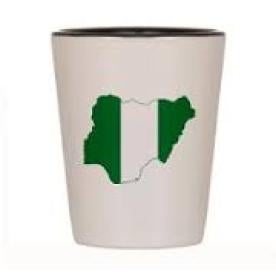In December 2012, the National Agency for Food and Drug Administration and Control (NAFDAC), which is Nigeria’s equivalent of the U.S. Food and Drug Administration (FDA), released a guidance document and guidelines for the registration of biosimilars in Nigeria. These documents were created in recognition of the need to ensure a pathway for biosimilars in Nigeria as patents continue to expire on many of the leading biologics owned by some of the world’s largest pharmaceutical companies.
What do the NAFDAC’s guidelines state?
According to NAFDAC, a biosimilar is a product that demonstrates similarity in terms of quality, safety and efficacy to a named Reference Biotherapeutic Product (RBP). The RBP must be licensed on the basis of a full registration dossier in Nigeria and/or by national drug regulatory authorities of countries who are members, observers or associates of the International Conference on Harmonization of Technical Requirements for Registration of Pharmaceuticals for Human Use (ICH) [such as the European Medicines Agency for Europe, the Pharmaceuticals and Medical Devices Agency for Japan and the Food and Drug Administration for the United States (US)]. What this means is that on the basis of proven similarity, the registration of a biosimilar will rely, in part, on non-clinical and clinical data generated with a previously licensed RBP.
Quick Facts:
- Biosimilars are not generic medicines.
- The manufacturer must provide the rationale for the choice of the RBP.
- The RBP should have been registered on the basis of a full registration dossier in Nigeria and/or by national drug regulatory authorities of countries who are members, observers or associates of the ICH.
- The NAFDAC’s guidelines also state that RBP’s that are not licensed in Nigeria must be from jurisdictions that have established relationships with Nigeria. However, the guidelines do not provide any details of what would be considered to be an “established relationship”.
- Only one reference product is allowed throughout the development of the biosimilar and the manufacturer needs to demonstrate that the chosen RBP is suitable to support the application for registration or marketing authorization of a biosimilar.
- The drug substance of the RBP and the biosimilar product must be shown to be similar and the dosage form and route of administration of the biosimilar product should be the same as that of the RBP.
- A biosimilar product cannot be used as a reference product by another manufacturer because a reference product has to be approved on the basis of a complete/full quality and clinical data package.
- Any biosimilar product whose name, package or label bears close resemblance to an already registered product or is likely to be mistaken for such registered product will not be considered for registration.
- Approval of a product through the biosimilar pathway is not an indication that the biosimilar may be automatically substituted with its reference product or other biosimilar.
- Pharmacists are not permitted to substitute biosimilars without first consulting with physicians.
- NAFDAC’s pathway for biosimilars includes the need for quality, pre-clinical and clinical data.
- The quality data includes detailed analytical characterization of the biosimilar product and RMP, a comparison of the physicochemical and biological activity and properties of the biosimilar product and RBP as well as data on the purity, impurities, contaminants and stability of the biosimilar product.
- Comparative pre-clinical studies which focus on issues regarding biological activity, pharmacokinetics, comparability, efficacy, safety and immunogenicity should also be conducted.
- The clinical studies required will depend on the existing knowledge about the RBP and the intended indication but will include at least pharmacokinetic and pharmacodynamic studies as well as efficacy studies.
- The minimum labeling requirements on the primary and secondary package labels are: name of the product-INN/scientific name and brand name (where applicable), manufacturer’s name and factory location address, the NAFDAC Registration Number, batch number/lot number, manufacturing and expiration dates, quantitative listing of all active ingredients per unit dose, and the defined storage conditions.
- Although Nigeria does not have any specific legislation focusing on data exclusivity or protection of undisclosed information, Section 3 of the Food, Drugs and Regulated Products, etc. Act prohibits the disclosure of information supplied to the NAFDAC to assist the agency in reaching a decision on subsequently filed application.
What does the registration process entail?
A manufacturer seeking to register biosimilar products in Nigeria is required to submit a separate application form for each product (the manufacturer must be represented by an applicant, namely, a duly registered pharmaceutical company, who must be in possession of a notarized Power of Attorney from the manufacturer authorizing him to speak for the manufacturer on all matters relating to the product).
The applicant will obtain an application form from NAFDAC’s Regulatory and Registration Directorate following submission of an application letter and the payment of prescribed fees. The application form requires the manufacturer’s name, the International Non-proprietary Name (INN)/scientific name, brand name, strength, pack size and indication of the biosimilar product. In addition, the following documents must be submitted:
- Manufacturer’s license or a certificate issued by the competent health authority of the country of manufacture: This document shows that the company is licensed to manufacture biotechnological products which may be used in the country of origin and/or exported.
- Product license or certificate of registration: This document serves as documentary evidence of registration of such product by the competent Health Authority of the country of manufacture.
- Certificate of Pharmaceutical Product (COPP) in conformity with the WHO format: This document serves as documentary evidence by the competent Health Authority that the sale of the product does not constitute a contravention of the drug laws of the country of manufacture.
- Valid WHO GMP Certificate.
All documents are required to be authenticated by the Nigerian Mission in the country of manufacture. In countries where no Nigerian Embassy or High Commission exists, any other Embassy or High Commission of any Commonwealth or West African country can authenticate the documents.
After licensing, the manufacturer will be responsible for ensuring that products imported after licensing comply with the approved label, quality and other conditions of approval. The manufacturer will also be responsible for importation, good distribution, storage of the product, submission of a detailed Risk Management Plan (RMP) as well as providing Periodic Safety Update Reports (PSUR) in line with the Guidelines for Post Marketing Surveillance (PMS).
What costs are involved in registering a biosimilar in Nigeria?
The official cost for registering a biosimilar in Nigeria is N350,000 (approximately US $2,190) plus 5% VAT. The guidelines provide a breakdown of the costs as follows:
a. N10,000 for Import Permit;
b. N240,000 for Processing Fee; and
c. N100,000 for Product License.
Every fee is subject to review and attracts 5% VAT.
How long is a biosimilar certificate valid?
The Certificate of Registration for a biosimilar is valid for a period of five (5) years; however, NAFDAC may suspend, withdraw or cancel the certificate of registration of a biosimilar product if the data or documents with which the product was registered are found to be false or falsified.
This post was written by Ufuoma Akpotaire of Nigerian Law Intellectual Property Watch and Lisa Mueller.




 i
i

